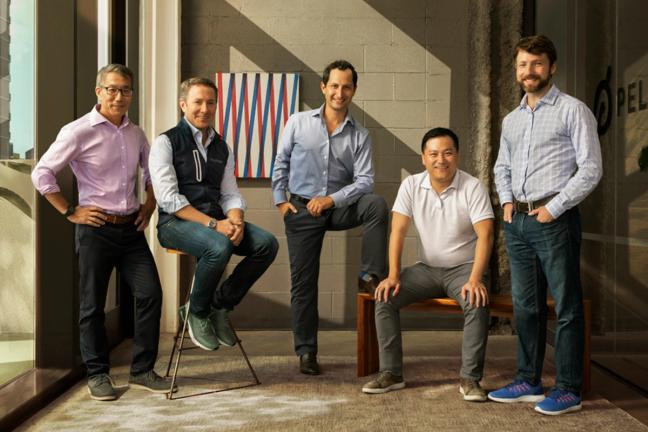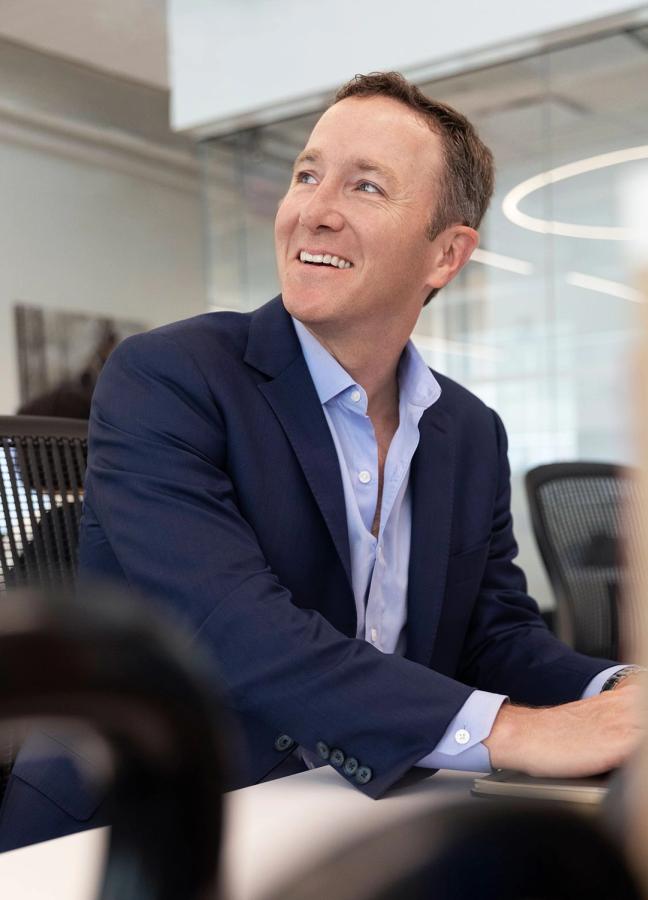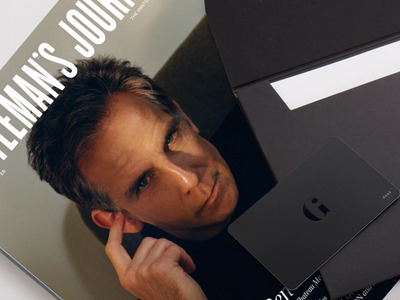Five lessons to learn from the career of John Foley
The Peloton co-founder has had a more varied career than most. Here’s what to take away...
“Are you calling me a journeyman?” John Foley says, halfway through the latest episode of the Gentleman’s Journal Podcast. And yes, I suppose I am. After all, the Peloton founder’s resumé reads like a huge, energetic zig zag — candy-making one minute, Silicon Valley and the Dot Com boom the next; a flirtation with the music industry, then books and Barnes & Noble and beyond — and then bikes.
John’s done everything. Which might explain why Peloton does everything, too. When he founded the company back in 2012, John quickly realised that it would have to be a jack of all trades if it was to work — a software company, a hardware maker, a content producer, and a gym, all at the same time. A nifty four for the price of one. Except the VCs weren’t buying. Back then, institutional investors were giddy on the likes of Snapchat and Instagram — explosive-growth software firms with retire-to-the-Hamptons-at-forty returns.

Many people said Peloton was a dreadful idea. But through grit, guile and guts, John prevailed. The company IPO’d last year, and it’s made its shareholders particularly happy in recent months, as more and more of us take to exercising at home. It is a success story as a business, but also as a brand and an idea — a lightning rod, perhaps, for things to come. Here are some lessons from the career of its founder. And, if you’d like a few more, you could always spend an hour in the company of our podcast.
1. Get your foot in the door
“I think the key when you’re starting out is to find an industry that you like — and get your foot in the door. I was unemployed at 30. And I was willing to take a job then that didn’t seem like my dream job, but at a company or in an industry that I wanted to be in for the long term. That seems better than taking a better job in an industry you don’t like. You’ve got to have a long term view on things.”

Foley with his Peloton co-founders
2. Further education is worth the money — but it only gets you so far
“I went to Harvard Business School because I got in, which was a minor miracle. Most of the people at CitySearch, the DotCom I worked at, were Ivy league educated with business school degrees. Coming from Key Largo, Florida, and Georgia Tech, and Waco, Texas as I had, I definitely benefited from the confidence I got at HBS. I was a pretty green, naive, under-educated, under-exposed 28 year old. Harvard Business School changed that.
“But at the same time, I think I was a hard worker thanks to my upbringing. I worked in McDonald’s from 14-17. I just had a more down to earth and more real understanding of the way the world worked than some of the other people. And I was just much hungrier than those who came from affluence and access. I had to prove myself.”
3. A good idea is one that improves your own life
“By the time I was approaching 40 I wanted to be my own person. I’m not that ego driven, but at some point you want to go out on your own and have your own story. My wife and I really loved boutique fitness. I loved the indoor cycling classes. They’re social, fun, and it’s an efficient workout. But it was hard to get there, it was expensive, it was hard to get into the classes — I thought there must be a better way. I started running the business by my future co-founders and friends and got enough reception and interest that it got me excited.”

4. You will get rejected — sometimes by very smart people. And that’s okay.
“There were a lot of people who told me it was a terrible idea at the start — mostly investors. It was a hard business to start. A lot of investors don’t like hardware companies. You need manufacturing, you need inventory, you need a lot of capital, you need logistics, there’s a lot of things that can go wrong.
Unfortunately I was raising money right after Instagram had sold for $1 billion, and everyone loved the idea of putting $750,000 into a company and then a few months later selling it for $1 billion. Snapchat was coming out and everyone loved that — an app that would explode. I was hoping Google might invest at one point as they had just bought Nest. I think the leadership of the Nest team going into Google didn’t work very well, so Google soured on hardware at that time. A lot of people didn’t like that we were vertically integrating, and how hard that was going to be.”
5. Don’t let perfect be the enemy of good
“My personal motto bleeds into the Peloton motto. Don’t let perfect be the enemy of good. Just get stuff done, every day. If it’s not perfect, fox it the next day. But keep putting points on the board every day.
“There are little metaphors like ‘every avalanche starts with a pebble’ and ‘a thousand mile journey starts with a single step’. But really, you can get in your way if you let perfect be the enemy of good. You’re not going to take that step if you’re scared it’s not going to be the perfect step. But you’ve just got to take any step and start moving.”
Want more? Here are five lessons in success to take from the career of Eddie Jordan…
Become a Gentleman’s Journal member. Find out more here.

Become a Gentleman’s Journal Member?
Like the Gentleman’s Journal? Why not join the Clubhouse, a special kind of private club where members receive offers and experiences from hand-picked, premium brands. You will also receive invites to exclusive events, the quarterly print magazine delivered directly to your door and your own membership card.


